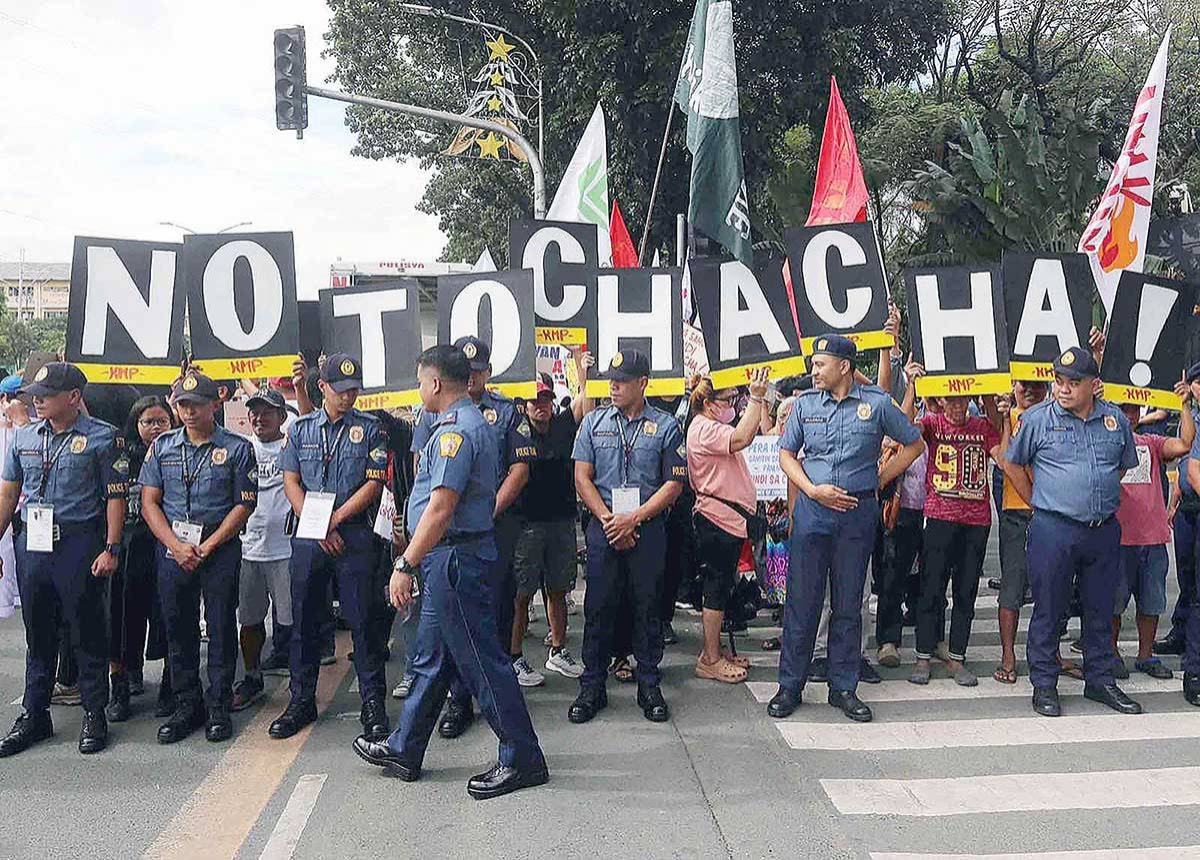The Commission on Elections (Comelec) has expressed concerns about the potential impact of a people’s initiative to amend the Constitution on its preparations for the 2025 elections. Comelec spokesman John Rex Laudiangco highlighted that the registration of voters would be the first area affected if a plebiscite is held this year.
According to Section 8 of the Voter Registration Act (Republic Act 8189), a list-up of voters is prohibited 120 days before a regular election and 90 days before a special election. Laudiangco emphasized that voter registration must stop within 90 days of a duly set plebiscite in accordance with the law. The Comelec had scheduled the registration of voters for the 2025 elections from February 13 to September 30 this year.
Laudiangco explained that the acceptance of signatures submitted to the Comelec’s offices is a ministerial job until the documents are determined to be sufficient in form and substance. These signatures, along with the certifications, are part of the initiatory phases of a petition for people’s initiative and will be submitted as an integral part of the petition when it is formally presented. This process aligns with Comelec Resolution 10650, which establishes the rules for holding a people’s initiative and referendum.
As of now, the Comelec has no plans to extend voter registration beyond September 30. In October, the Election Registration Board (ERB) will begin screening the voter list, finalize precinct assignments, and determine the procurement of election forms and supplies, including the number of ballots to be printed. Laudiangco emphasized that the number of registered voters is critical to avoid printing excess ballots.
Comelec Chairman George Erwin Garcia emphasized that the Comelec will adhere to its own timeline in accordance with existing rules provided by law. The commission will only acquire jurisdiction over the people’s initiative after receiving a petition from its proponents.
In a related development, the election watchdog Democracy Watch expressed skepticism about the capacity of the lone bidder, Miru Systems Co. Ltd., to automate the 2025 elections. Democracy Watch cited the company’s poor track record in several countries, including catastrophic failures in election projects in Iraq and the Democratic Republic of the Congo, as well as numerous questionable deals worldwide.
Miru Systems, a South Korean company, defended itself by stating that the allegations are false and that the company designs, develops, and manufactures secure electoral systems that meet international standards. Democracy Watch emphasized that facts and evidence should be the sole qualifier in the process, rather than simply relying on statements from the proponents.
Democracy Watch referred to a report by the Carter Center, an international election observation mission, which confirmed technical failures in Miru Systems’ projects. The report highlighted concerns about the quality and transparency of the voter registration process. It also mentioned that technical problems and machine inoperability led to the closure of some polling stations, resulting in the extension of voting for another day in the Democratic Republic of the Congo.
These concerns raised by Democracy Watch and the Carter Center underscore the importance of ensuring the reliability and effectiveness of the automated systems used in elections. Transparency and accountability are crucial to maintaining the integrity of the electoral process.
In conclusion, the Comelec is concerned about the potential impact of a people’s initiative on the preparations for the 2025 elections, particularly in terms of voter registration. The commission will follow the existing rules and timelines provided by law. Additionally, skepticism has been raised regarding the capacity of Miru Systems Co. Ltd. to automate the upcoming elections, citing its poor track record in other countries. It is essential to prioritize facts, evidence, and transparency in evaluating the capabilities of any company involved in electoral processes.







